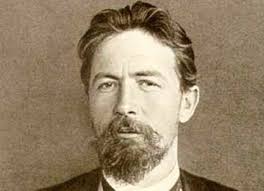
If you come to an Anton Chekhov short story looking for a plot, you’ve come to the wrong place. If you read Chekhov and fret that nothing ever happens, you’d best reconsider your definition of “nothing.”
These thoughts reoccurred to me while rereading some stories in the Richard Pevear/Larissa Volokhonsky translation of Selected Stories of Anton Chekhov. I found it good medicine, especially for a poet, to swim in the Russian master’s pool.
Chekhov is a perfect example of my pet theory about literature: almost all of it is a riff on Henry David Thoreau’s famous line, “The mass of men lead lives of quiet desperation.” I even used Henry’s line as an epigraph to my first poetry collection, The Indifferent World.
Less literary but surely related to Thoreau’s line from Essays on Civil Disobedience is a title from the Irish band U2’s song: “I still haven’t found what I’m looking for.” To my mind, they go hand in hand. Man searches as if there is something — some source of happiness in life — missing, but it is always somewhere ahead of him, just out of reach. It is, in fact, the source of his quiet desperation.
This afflicts even the characters we least expect it from. Contemporary story writer Peter Orner considers “The Bishop” to be Chekhov’s best story, and it is the penultimate tale in the collection I just finished.
And yes, even the bishop, a respected and revered figure in the Russian Orthodox Church, is visited by doubt in the night. Even the bishop is bedeviled by both the past and the future while musing on the present.
It seems we can find a paragraph like the one below in most any Chekhov short story. The moment of truth. Let’s jump into the mind of the bishop, who is listening from his sickbed to the singing of monks in the church. As notes to the story explain, the songs he hears are “words from hymns sung during the services known as ‘Bridegroom services’ celebrated on the first three days of Holy Week.”
In the evening the monks sang harmoniously, inspiredly, the office was celebrated by a young hieromonk with a black beard; and the bishop, listening to the verses about the Bridegroom who cometh at midnight and about the chamber that is adorned, felt, not repentance for his sins, not sorrow, but inner peace, silence, and was carried in his thoughts into the distant past, into his childhood and youth, when they had also sung about the Bridegroom and the chamber, and now that past appeared alive, beautiful, joyful, as it probably never had been. And perhaps in the other world, in the other life, we shall remember the distant past, our life here, with the same feelings. Who knows? The bishop sat in the sanctuary, it was dark there. Tears flowed down his face. He was thinking that here he had achieved everything possible for a man in his position, he had faith, and yet not everything was clear, something was still lacking, he did not want to die; and it still seemed that there was some most important thing which he did not have, of which he had once vaguely dreamed, and in the present he was stirred by the same hope for the future that he had had in childhood, and in the academy, and abroad.
“They’re singing so well today!” he thought, listening to the choir. “So well!”
I love how the abstract musings are bookended by the actual moment of singing. And how Chekhov hits on our habit of laundering our own pasts of all its ills until childhood seems like the perfect world it surely wasn’t. And how a man of faith in a high office is left, like the rest of us, with stark questions about the afterlife and the purpose of our existence.
In short, this bishop still hasn’t found what he’s looking for and never will, because that, Chekhov seems to say, is what life is all about. That is the quiet desperation we each inherit and wrestle with when we dare engage our thoughts with such thoughts.
You might be tempted to brand Chekhov a downer and say all these desperate characters are the products of a decidedly cynical man, and yet story after story provides glimpses of life’s beauty (see above, where moments from childhood are called “alive, beautiful, joyful”).
And then the ends of the stories come, often with inconsequential, quotidian observations about the setting or with a banal point about goings on around the character. Life goes on, Chekhov tells us, but neat endings and bow-tied resolutions are rarities.
And yes, we will be forgotten soon after we’re gone. And yes, others will experience the same joys and moments of quiet desperation we did, but how many would trade the journey away?
For Chekhov, ultimately, life is worth its tribulations. We readers should know — it was the wellspring of his art.




